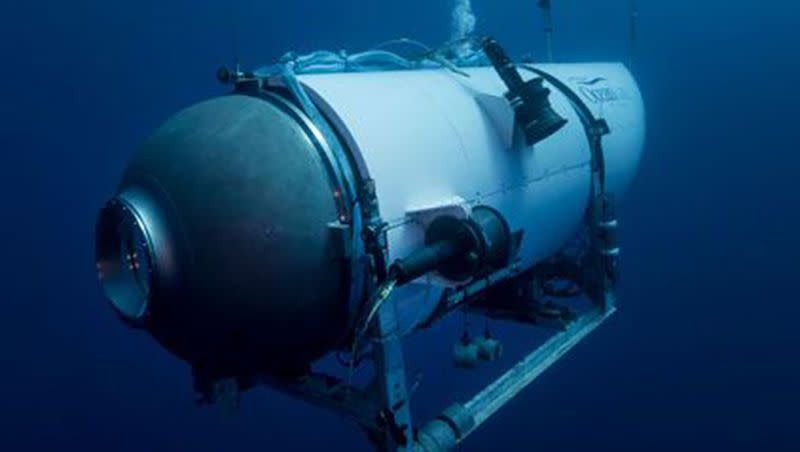U.S. Navy reportedly heard potential implosion of Titan on Sunday

- Oops!Something went wrong.Please try again later.
On Sunday, the submersible Titan began its voyage to the Titanic wreckage when it lost communications with the Canadian research ship Polar Prince about an hour and 45 minutes after the dive, per the Deseret News.
Upon the sub losing communications, the U.S. Navy soon began listening for the Titan using an acoustic detection system used to detect enemy submarines. The system detected what was suspected to be an implosion near where the debris field was discovered on Thursday. The Navy told the Coast Guard commander on site about what it had detected, U.S. defense officials said to The Wall Street Journal.
Related
So, on Sunday, the U.S. Navy had a potential indication that the sub imploded.
Contact was lost around the time the sub was 9,000 feet deep into the ocean. U.S. defense officials told The Wall Street Journal, “The U.S. held off making public what noises it had detected because it wanted to ensure search-and-rescue operations continued and couldn’t say for sure it was an implosion.”
The search-and-rescue operation for the Titan spanned an area twice the size of Connecticut and went down 21⁄2 miles into the ocean. The U.S. Navy, Canadian Coast Guard and OceanGate Expeditions were all involved in the search and joined by a French team, a submariner from the British Royal Navy and experts from the Woods Hole Oceanographic Institution, according to the Deseret News.
On Thursday during the search, the U.S. Coast Guard said a remotely operated vehicle found a debris field on the ocean floor by the Titanic wreckage and Rear Adm. John Mauger said after assessing the debris, it was “consistent with the catastrophic loss of the pressure chamber,” per Politico. The cause of implosion is still unknown, per NPR.
The five passengers aboard the Titan were presumed dead. They were Stockton Rush, CEO of OceanGate; Hamish Harding, a British aviator; Shahzada Dawood, a British Pakistani businessman; Suleman Dawood, son of Shahzada Dawood; and Paul-Henry Nargeolet, director of Underwater Research for E/M Group and RMS Titanic Inc., per the Deseret News.
The investigation into what happened to the Titan will continue, Mauger said, according to The Guardian. The debris field was found 400 miles south of St. John’s, Newfoundland. In relation to the Titanic, it was “about 1,600 feet from the bow of the Titanic,” per CNN.
Related
What James Cameron said about the Titan
“We got confirmation within an hour that there had been a loud bang at the same time that the sub comms were lost. A loud bang on the hydrophone. Loss of transponder. Loss of comms. I knew what happened. The sub imploded,” James Cameron said, according to The Guardian. Cameron said he had sources who told him about the noise.
Cameron is known for being the director of films like “Titanic” and “Avatar,” but he’s also a deep sea diver. He’s made 33 trips to the Titanic wreckage and took a submersible down to the ocean floor of the Mariana Trench, per the Deseret News.
“I’m struck by the similarity of the Titanic disaster itself, where the captain was repeatedly warned about ice ahead of his ship and yet he steamed at full speed into an ice field on a moonless night and many people died as a result. For a very similar tragedy, where warnings went unheeded, to take place at the same exact site with all the diving that’s going on all around the world, I think is just astonishing,” Cameron told ABC News.
What happens when a sub implodes?
An implosion occurs due to pressure. “An implosion is basically the opposite of an explosion. Instead of pressure from within moving outward, pressure from outside is rushing in. Similar to an explosion, there is unlikely to be much left of the vessel and its cargo,” Insider reported.
Implosions occur quickly. In the case of a catastrophic implosion, it happens “within just a fraction of a millisecond,” Aileen Maria Marty, a former naval officer and professor at Florida International University, told CNN. The deeper one goes into the sea, the more pressure exists.

